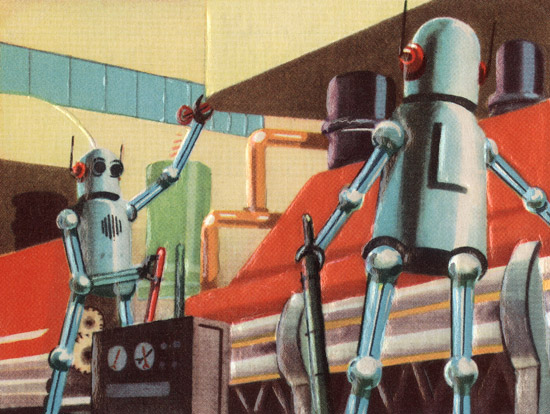There were three people ahead of me at the checkout line at Best Buy yesterday, and it took 45 minutes to pay for my purchase, so I hope human beings are soon replaced by superintelligent robots. We had our shot. Didn’t pan out.
I’m not one who thinks conscious machines are on the verge of “awakening” and destroying us, but I acknowledge that as AI assumes more responsibilities and is permitted to teach itself via Deep Learning, ghosts within those systems can lead to a cascading disaster.
From Andrew Lohn, Andrew Parasiliti and William Welser IV at Time:
Forbes reported this month: “The vision of talking to your computer like in Star Trek and it fully understanding and executing those commands are about to become reality in the next 5 years.” Antoine Blondeau, CEO at Sentient Technologies Holdings, recently told Wired that in five years he expects “massive gains” for human efficiency as a result of artificial intelligence, especially in the fields of health care, finance, logistics and retail.
Blondeau further envisions the rise of “evolutionary intelligence agents,” that is, computers which “evolve by themselves – trained to survive and thrive by writing their own code—spawning trillions of computer programs to solve incredibly complex problems.”
While Silicon Valley enthusiasts hail the potential gains from artificial intelligence for human efficiency and the social good, Hollywood has hyped its threats. AI-based enemies have been box office draws at least since HAL cut Frank Poole’s oxygen hose in 2001: A Space Odyssey. And 2015 has truly been the year of fictional AI provocateurs and villains with blockbuster movies including Terminator Genisys, Ex-Machina, and The Avengers: Age of Ultron.
But are the risks of AI the domain of libertarians and moviemakers, or are there red flags to be seen in the specter of “intelligence agents?” Silicon Valley cannot have “exponential” technological growth and expect only positive outcomes. Similarly, Luddites can’t wish away the age of AI, even if it might not be the version we see in the movies.•




